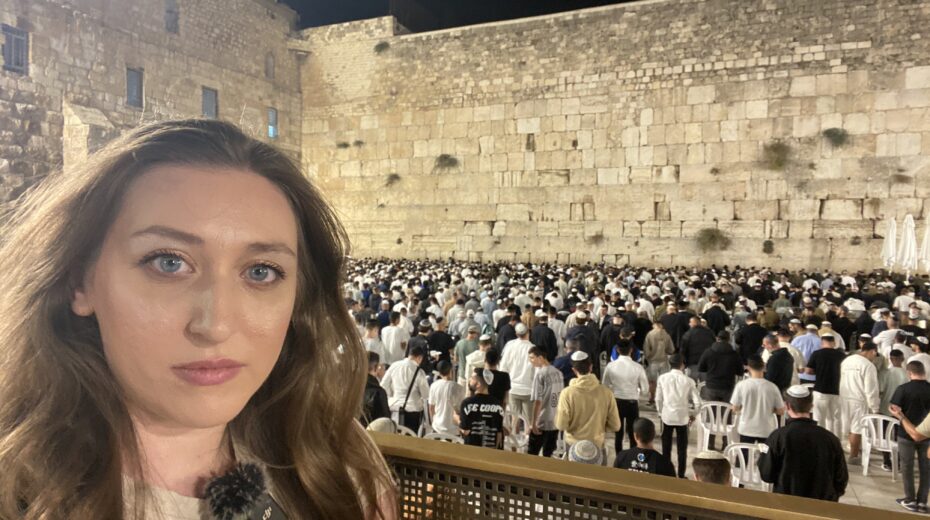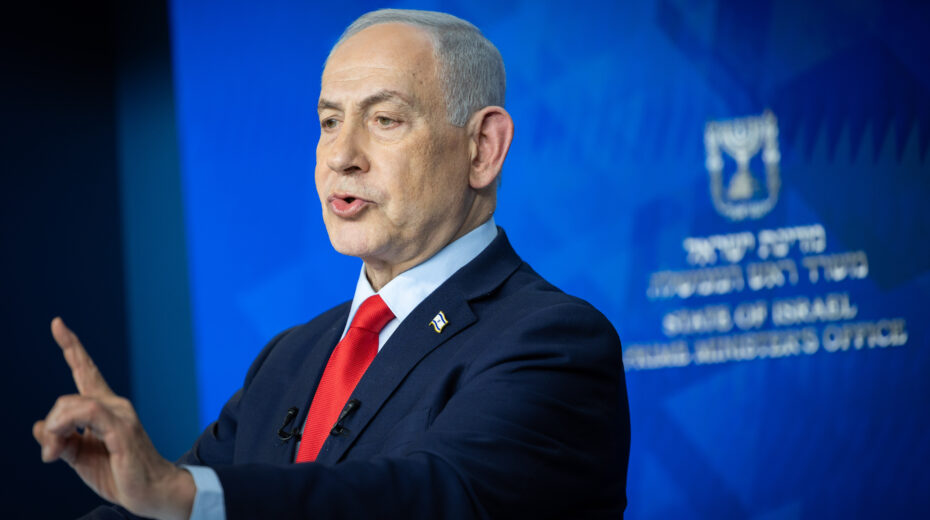Selichot, communal prayers for divine forgivness that accompany the recently-concluded High Holy Days, was nothing like I expected this year, but not for reasons I initially thought. I joined a midnight selichot excursion in the Old City of Jerusalem with a tour guide on a night that wasn’t a ‘main prayer night,’ but even for a slow night, the streets were not their usual selves, teeming over with tourists and Israelis.
Standing outside Jaffa Gate, looking at the night sky, the sound of invisible Israeli fighter jets rumbled and echoed above, a calming presence amidst the threat of rockets. Still, what happens if there is a siren? Panic could ensue, risking a human stampede. My friend, an officer in Home Front Command, gave us instructions: lay down on the ground with your hands on your head. To cope with this concoction of strange elements, I shifted my focus to filming and reporting for a video I was to produce for a client – “get the shot and get out” was my agenda.
Don’t get me wrong, I like selichot, but in all candor, I prefer not to ruin my circadian rhythm, especially when I have unobstructed access to the God of the universe (or so I thought).
Our tour was a whiplash of overstimulating selichot sights, frenzied pockets of noise, laughter, dancing, singing, and a game of ‘follow the leader’ through muted alleyways lit with sickening dull yellow lights, creeping by the street view windows of residential houses towering on each side; disturbing people’s sleep, a selichot visitor’s selfish prerogative.
We went to the courtyard of King David’s tomb and the Upper Room, where musicians played and sang songs for selichot-goers and a group of IDF soldiers, standing in a circle, singing and clapping – brothers in arms. Usually, there are celebrations on every corner you turn, but this year, barely any musicians came. From there, we went to the quiet rooftops of the Old City, where you could see the glowing golden top of the Dome of the Rock, an unwanted squatter on grounds Jews wish they could reclaim, and visited the little Kotel, a small continuation of the Western Wall, in my opinion one of the Old Cities ‘best-kept secrets.’
Thanks a lot, pigeon
This was the place I made sure to put down my phone camera, be present, and fully immerse myself in the quiet holiness of that hidden cove, where those privileged to ‘know the secret’ come to pray and touch the stones of the wall, as getting a front row to the wall at the main Western Wall plaza is near impossible. Everyone listened to the guide and only prayed in reverence in hushed tones.
As I stood under a stone archway, preparing the posture of my heart to pray, I felt something heavy and thick fall on my head – a sleeping pigeon crapped on my hair. Superstition would say I was blessed with extra ‘good luck’ and that God would hear my prayers, but my moment with God was stolen by embarrassment as I awkwardly washed out the filth from my freshly clean hair, trying not to draw attention to myself.
By the time I joined our group at the wall, I was disheveled, my hair wet and smelly, and since the show must go on, I still had to film myself.
Before midnight, we finally arrived at the Western Wall where thousands joined. Between the poetic prayers, there were beautiful and powerful moments, such as the blowing of the shofar and praying for peace, protection for the IDF and the police, and that God would destroy our enemies.
But my emotions were clogged, and not because I had a bone to pick with a rude pigeon, but subconsciously, with everything that transpired since my last selichot two years ago. Back then, my insides were raw with grief over my Abba’s death; I moved apartments three times, started a business, and a war broke out. We still have hostages in Gaza, I’m still dealing with a stressful lawsuit, and the prayer for “patience while I wait for a husband” hasn’t expired. When I observe myself and my struggle to forgive or not sin, I am the least of the least. But I’m too tired to ask to be humbled and forgiven, which is the main reason we are there. Instead, I utter: “God, heal this person and that person. God, bring peace, bring the hostages home.”
I don’t know the selichot prayers enough to follow along (a perfect excuse for a numbed conscience), so this year, I just filmed and observed. Then, crashing through the hard exterior of my camera lens came a visual that melted my heart when the cantor prayed from Exodus 34:6:
And he passed in front of Moses, proclaiming, “The Lord, the Lord, the compassionate and gracious God, slow to anger, abounding in love and faithfulness.”
Thousand of men and women, without exception, bowed from the waist down, hiding their faces, as an act of identification with Moses when God proclaimed His attributes as a response to this request in Exodus 33:18: “Now show me your glory.”
Holy, Holy, Holy
Just a short moment before, in the book of Exodus, over a million stiff-necked, childish, orphan-minded Hebrews whom Moses freed from slavery showed their gratitude by sinning against the God who brought them out of Egypt, building a golden calf to replace Him.
So, after just completing 40 days of receiving the law on Mt. Sinai, Moses backtracks in a last-ditch effort to ask for their atonement. Still, it doesn’t sound like your typical apology but more a desperate plea for God’s presence and validation. Perhaps Moses, like me, was too winded or exasperated to string together lofty words of repentance. Instead, he claws his way below the epicenter of a lost nation’s concussed soul and begs: God, please, I need you. Just show me who you are, and I’ll (we will) be ok.
How often do I bow down to God? I’d like to think that, as a spirit-filled, atoned believer, bowing down in reverence is a way of life and not a one-off, and that I am confident that the prayer for God to show me His holiness will always be answered, but – no. And now we break through to the epicenter of my guarded soul – I associate the act of bowing down mainly with those ‘forgiven believers’ who feel God’s presence and always pray the right prayers, but not me.
If only Moses knew that his raw honesty would result in thousands of God-seeking Jews bowing down in the Promised Land, and a stark reminder to me that if I ask, even if it’s the only words I have the strength to utter, asking God who He is, will always be answered.
Who knows what will happen this coming year till the next selichot? Perhaps another pigeon will decide to humiliate me in public again, as life often does; I’ll go through the messy process of cleaning myself from the repercussions and fight the defense mechanism of my soul just to pray a little prayer. But if, at this time next year, I’m still asking God to show me His glory, I would say I’ve won.
Thanks, Moses.














